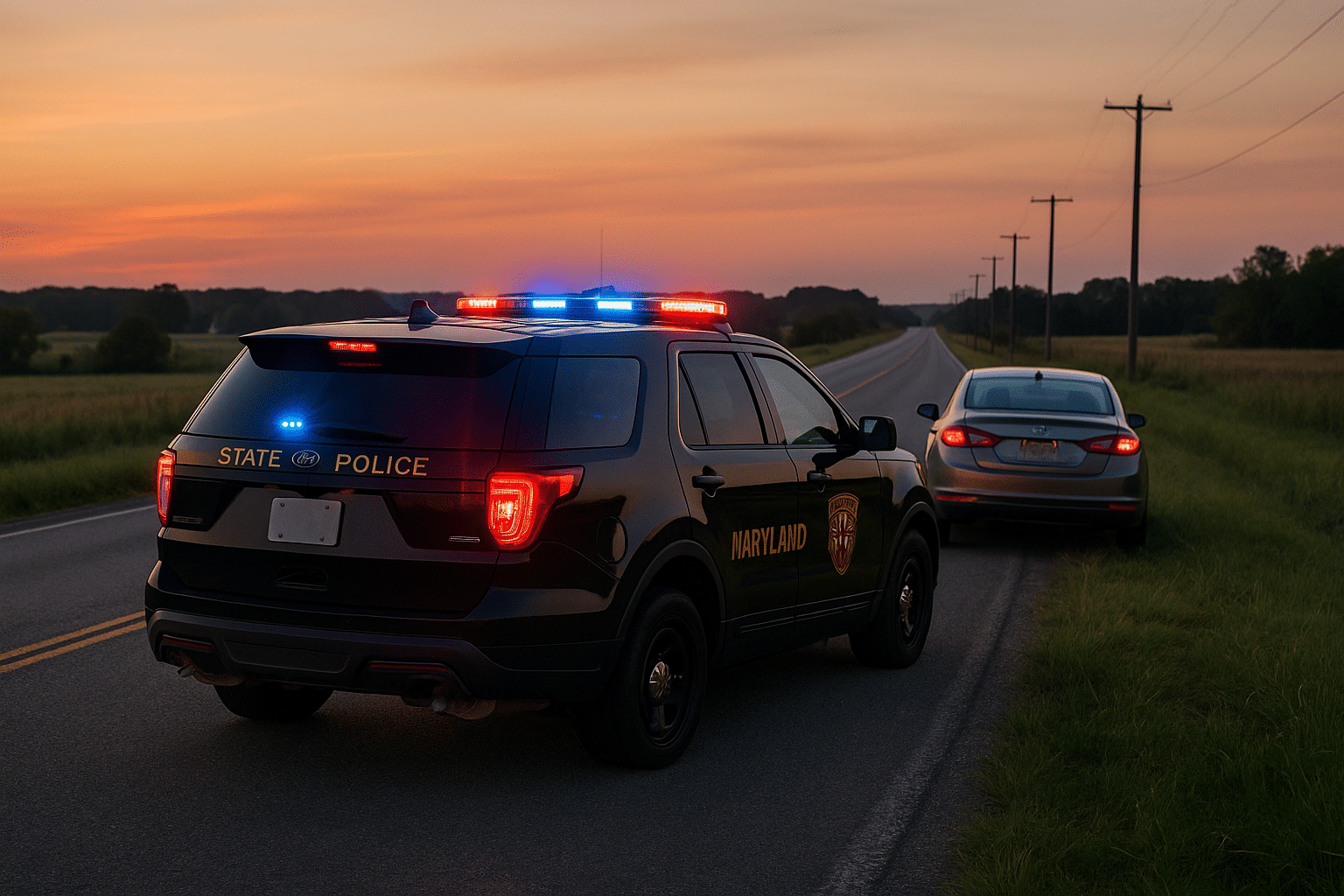
Many Maryland drivers are surprised to learn that a speeding ticket is technically a misdemeanor under state law. While most people think of speeding as a minor traffic infraction, Maryland’s Transportation Article actually classifies nearly all moving violations — including speeding — as misdemeanors unless the law specifically designates them as civil offenses or felonies.
That doesn’t mean every speeding ticket will result in a criminal record or jail time. In fact, most are handled as simple “payable” offenses. But understanding when a speeding ticket is considered a misdemeanor — and when it can turn into something more serious — is important for anyone facing traffic charges in Southern Maryland.
Why Speeding Is Classified as a Misdemeanor
Under Maryland Transportation § 27-101, any violation of the state’s vehicle laws is deemed a misdemeanor, unless the statute defines it otherwise. That means if you receive a speeding ticket, it technically falls under Maryland’s criminal code.
However, the majority of speeding tickets are treated as non-jailable misdemeanors. These are considered “payable” traffic citations, meaning you can pay the fine without appearing in court. While the offense remains technically a misdemeanor under the law, it functions more like a civil infraction.
Payable vs. Must-Appear Speeding Citations
The Maryland District Court separates speeding offenses into two categories:
- Payable Citations: These are the most common. You can pay the fine, request a waiver hearing, or request a trial. No jail time is involved, and the matter does not typically create a criminal record.
- Must-Appear Citations: These are more serious and require a court appearance. They usually involve aggravating factors like reckless driving, aggressive driving, or excessive speeding. A conviction for these offenses may lead to higher fines, points, and even jail time.
Even though both categories are classified as misdemeanors, only must-appear citations carry criminal consequences.
When a Speeding Ticket Can Lead to Criminal Penalties
While a standard speeding ticket is unlikely to result in jail, certain behaviors can elevate the offense to a criminally significant misdemeanor. These include:
- Reckless Driving: Defined under § 21-901.1, reckless driving occurs when someone operates a vehicle with willful or wanton disregard for safety. It’s a misdemeanor punishable by up to a $1,000 fine and six license points.
- Negligent Driving: Also a misdemeanor, this occurs when a driver acts carelessly and endangers life or property.
- Aggressive Driving: Involves multiple traffic offenses committed in succession, such as speeding, tailgating, or improper lane changes.
- Excessive Speeding: Traveling 30–40 mph or more over the posted limit can lead to enhanced penalties, higher points, and possible jail exposure if combined with reckless conduct.
If your citation says “must appear” or lists one of these offenses, it means you’re facing a criminal charge that should not be ignored.
Penalties for Speeding and Related Misdemeanors
Here’s what to expect based on the type of offense:
- Basic Speeding (Payable): Fines range from $80 to $530 depending on how fast you were going. You can receive up to five points on your license.
- Reckless Driving (Misdemeanor): Up to a $1,000 fine and six points.
- Negligent Driving (Misdemeanor): Up to a $500 fine and one point.
- Aggressive Driving (Misdemeanor): Up to a $500 fine and five points.
While these offenses are misdemeanors on paper, most do not involve jail time unless combined with other serious conduct like DUI, racing, or accidents involving injury or death.
Checking Your Ticket: Is It Criminal or Payable?
Your Maryland citation will clearly state whether it’s “Payable” or “Must Appear.”
- A Payable Ticket can be handled by mail or online.
- A Must-Appear Ticket requires you to appear in court and may carry criminal penalties.
If you’re unsure, you can check your citation number on the Maryland Judiciary Case Search or contact the District Court in your county.
Defending a Speeding Ticket in Southern Maryland
Even though most speeding tickets are minor, their consequences can add up — especially if you already have points on your license. An experienced criminal defense lawyer can help by:
- Reviewing the officer’s radar, lidar, or pacing evidence.
- Identifying errors in how the ticket was issued.
- Negotiating for a reduced charge or probation before judgment (PBJ).
- Protecting your driving record and insurance rates.
Whether you’re cited in Prince George’s, Charles, Calvert, or St. Mary’s County, having a local defense attorney can make a major difference in the outcome of your case.
The Bottom Line
So, is a speeding ticket a misdemeanor in Maryland?
Yes — technically, it is. Maryland law classifies most traffic violations, including speeding, as misdemeanors. But in practical terms, most speeding tickets are treated as non-criminal payable offenses that carry fines and license points, not jail.
Still, the distinction matters. If your ticket involves reckless or aggressive driving, it can lead to serious penalties, higher insurance costs, and even criminal charges.
If you’ve been cited for speeding or reckless driving in Southern Maryland, contact a local defense attorney who knows the courts in Prince George’s, Charles, Calvert, and St. Mary’s Counties. A knowledgeable advocate can help you protect your record and keep your license.
